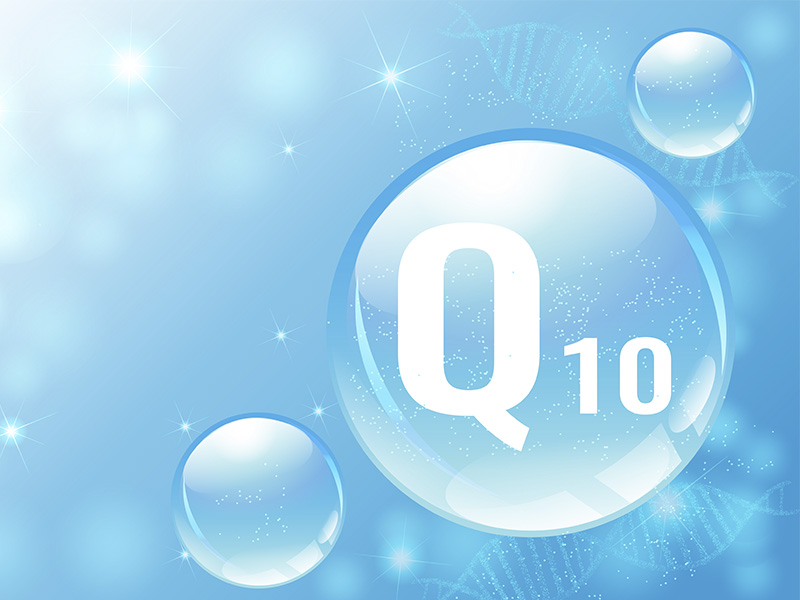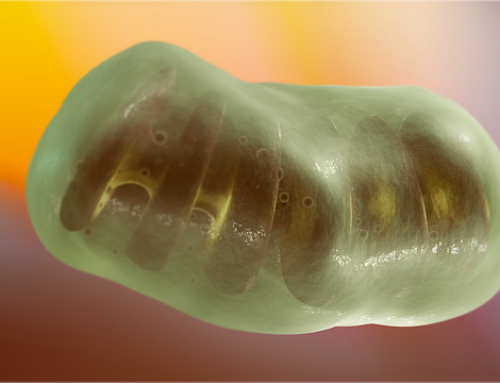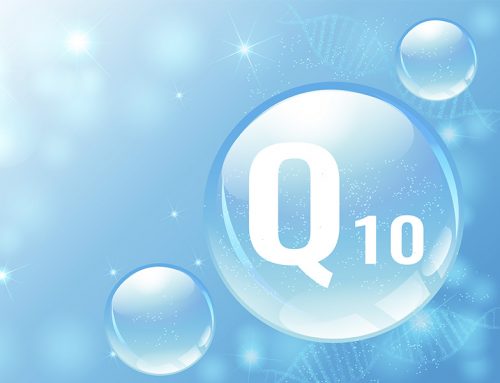At the ends of our chromosomes, there are repetitive DNA sequences called telomeres. These telomeres protect the chromosomes from damage and degradation. They help to maintain genetic stability. Without telomeres, the unprotected ends of chromosomes might set off immune system DNA damage control responses, resulting in chromosome instability. Or, the unprotected chromosome ends might fuse together, disrupting gene expression [Mantle 2025].

Oxidative stress and inflammation can accelerate telomere shortening. CoQ10 supplementation may help to slow down the process.
Telomeres are important for genetic stability and for correct cell division. However, with every cell division as we get older, there is a small loss of telomere length. Eventually, over time, our telomeres become critically short. They become so short that they cannot protect the chromosome ends. The consequence of this critical telomere shortening is either cellular senescence or apoptosis [Mantle 2025].
In cellular senescence, the cells stop dividing but do remain metabolically active. In apoptosis, the affected cells undergo a programmed cell death process. This process prevents the proliferation of cells with damaged DNA. Either way, the cells lose the ability to repair and regenerate themselves. The take-home message is that aging-related shortened telomeres are significantly associated with increased all-cause mortality [Mantle 2025].
Telomere Shortening and Aging and Other Causes
Telomere shortening is a natural part of the aging process. However, there are other factors that can accelerate the process of telomere shortening. These factors include lifestyle factors such as diet, alcohol consumption, and smoking and exposure to environmental toxins. Moreover, telomere shortening is affected by mitochondrial dysfunction, oxidative stress, and systemic inflammation at the cellular level [Mantle 2025].
Individuals with many different disorders and diseases are at increased risk of premature telomere shortening. Typically, these disorders and diseases are characterized by mitochondrial dysfunction and oxidative stress and chronic inflammation [Schneider 2022]:
- Cardiovascular diseases
- Respiratory disorders
- Digestive disorders
- Musculoskeletal disorders
- COVID-19 illness
Note: This study – based on data in the United Kingdom Biobank from 472,432 English participants – did not show a significant correlation between shortened telomeres and cancer-related mortality [Schneider 2022].
Coenzyme Q10 and Telomere Shortening
Whenever there is an increased risk of telomere shortening, then supplementation with CoQ10 should be considered. This is especially the case whenever mitochondrial dysfunction and subsequent increased oxidative stress and inflammation are causes of the telomere shortening [Mantle 2025].
CoQ10 plays a key role in the functioning of the mitochondria. It also serves as a lipid-soluble antioxidant protecting cellular membranes from oxidative stress caused by harmful free radicals. In addition, CoQ10 directly modulates the action of genes involved in inflammation. CoQ10 may play a role in regulating the release of pro-inflammatory cytokines. Finally, CoQ10 may help to reduce cellular senescence induced by oxidative stress and may help to limit cellular apoptosis induced by oxidative stress [Mantle 2025].
Reduced Telomere Shortening in the KiSel-10 Study

In the KiSel-10 randomized controlled trial, Prof Urban Alehagen showed that nutritional supplementation with Coenzyme Q10 and selenium significantly reduced cardiovascular mortality in elderly citizens still living at home.
In Sweden, Prof Urban Alehagen and colleagues conducted a randomized controlled trial enrolling community living elderly citizens with documented low serum selenium levels. Half of the study participants received a daily combination of CoQ10 and selenium for four years. The other half received matching placebos. Post-study analysis revealed significantly less telomere shortening in the active treatment group compared to the placebo group. The KiSel-10 study researchers found a significant relationship between longer telomeres and reduced cardiovascular mortality [Opstad 2022].
Conclusion: CoQ10 and Telomere Shortening
Adequate CoQ10 is vital for normal mitochondrial function, antioxidant defense, and anti-inflammatory activity.
CoQ10 can act as an anti-senescent and anti-apoptotic agent.
There is evidence for a role of supplementary CoQ10 in reducing premature telomere shortening.
Sources
Mantle D. Introductory background to telomere shortening. Journal of Kidney Care Supplement. 2025;10(5):S6-S11.
Opstad TB et al. Selenium and Coenzyme Q10 intervention prevents telomere attrition, with association to reduced cardiovascular mortality-sub-study of a randomized clinical trial. Nutrients. 2022 Aug 15;14(16):3346.
Schneider CV et al. Association of telomere length with risk of disease and mortality. JAMA Intern Med. 2022 Mar 1;182(3):291-300.
The information presented in this review article is not intended as medical advice. It should not be used as such.









Leave A Comment